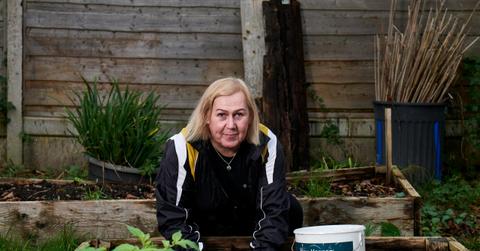Women Leading The Fight Against Food Waste

In an era desperate for sustainability, women-led companies are at the forefront of the fight against food waste, a global issue that results in approximately 1.3 billion tons of discarded food annually, accounting for nearly one-third of all food produced for human consumption.
These innovative enterprises, each helmed by a female CEO, are pioneering diverse strategies to address this crisis.
In the United States alone, food waste results in an economic loss of approximately $161 billion each year, with environmental repercussions such as 170 million metric tons of CO2 emissions. By implementing unique solutions — from technological advancements to community-driven initiatives — these women are redefining waste management and leaving a lasting, positive impact on both the environment and society. Through their efforts, they are not only combating food waste but also inspiring change across industries worldwide, setting a precedent for the integration of sustainable practices in business operations.
Olio
Olio is a food-sharing app where users can log on and share food and other items as a local community, to make buying new things the last option.
Olio was founded by CEO Tessa Clarke, who grew up on a dairy farm in Yorkshire and developed a strong belief in the value of food, learning early on the effort required to produce it.
A pivotal moment during a house move, where surplus food led her to share with neighbors, sparked the concept for Olio, a food-sharing app. Partnering with Saasha Celestial-One, COO, who shared a background in resourcefulness thanks to her Iowa hippy entrepreneur parents, they quickly developed the idea to combat food waste.
The app’s prototype began with 12 neighbors sharing surplus food through a WhatsApp chat, which quickly gained traction. The app expanded, allowing for sharing of not just food but all unused household items, and has grown from a North London neighborhood initiative to a global movement with millions of users. Olio embodies the belief that small individual actions can effect significant change, advocating for optimism and community engagement to counteract waste, all initiated by the simple act of sharing a few leftover groceries.
The Food Recovery Network
The Food Recovery Network was created in 2011 to save food in college campus dining halls and other places where it might get lost and ensure it goes to community members suffering from food insecurity and hunger.
Since its founding, the organization has grown to include over 230 college chapters nationwide, each working tirelessly to divert surplus food to local nonprofits and community organizations. The recovery efforts have transformed millions of pounds of food into millions of nutritious meals for those in need.
The Food Recovery Network has been led by Regina Harmon since 2015. Regina has focused on building strategic partnerships with campus dining services and local food banks to streamline the recovery process and increase the volume of food redistributed. Her leadership has also spearheaded initiatives to engage students in meaningful educational experiences, making them active participants in the fight against food waste and hunger.
Detroit Dirt
Detroit Dirt is a company created by Pashon Murray that collects food scraps from the Detroit area and composts them to sell as organic fertilizer and mulch. Pashon’s father’s maintenance work around many landfills full of unnecessary waste inspired her to create the company.
Her company operates on a closed-loop food system considering food as a circular system. They use manure and leftovers to grow food, allowing the table to sustain the farm as well, rather than viewing it as a linear process from farm to table.
Dispatch Goods
Dispatch Goods is a company created by Lindsey Hoell to remove packaging waste from foods. After witnessing the magnitude of the global waste crisis near the coast and frequently observing trash accumulating along the shorelines, Lindsey created this company.
This women-led and founded company specializes in reverse logistics, offering a platform that seamlessly integrates reuse solutions for businesses. They partner with companies, often caterers or campuses, to provide the reusable packaging for all the food, rather than the clients buying paper or plastic. Then, Dispatch collects and sanitizes it all for reuse when the customers finish.
Fresh Paper
Fresh Paper is a unique product somewhat like a dryer sheet for food. They infuse biodegradable paper with specific herbs to make food last longer, depending on which food and paper you choose.
Invented by the CEO Kavita Shukla, in high school, to help developing nations without things like fridges, this product is now in multiple major retailers like Whole Foods and Wegmans for everyone to preserve their food.






